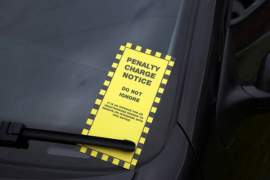
Buying A Used Car

Buying a used car will be a daunting task for those uninitiated in the process. The uninformed are almost always victimized in these transactions, as used car dealers often do not have to the same standards are car dealerships. You are however, entitled to certain rights as a buyer under consumer protection laws. Be aware of the terms related to selling used cars and the obligations of the seller, including implied warranties. All promises made during used car transactions must be recorded in writing to be legally valid. In getting promises and other critical information, you will gain the protection of federal and state laws and ensure that your used car transaction is safe and minimizes the risk of fraud.
Laws regarding used used cars
Truth in Mileage Act of 1986 - federal law that bans the tampering of a car’s odometer in order to make the car appear to have less mileage than it has actually traveled. This is one of several laws that require honest and accurate reporting on the condition of a used car.
The Magnusson-Moss Warranty Act of 1975 (Public Law 93-675) is legislation that regulates consumer warranties when offered on products. This legislation does not force suppliers to give warranties to consumers, but merely ensures that the warranties are fair and easy to understand.
The Magnuson-Moss Warranty Act also sets up standards for companies to respond and be accountable for their warranties and creates an alternative dispute resolution infrastructure to resolve low-level disputes without the need to burden the judicial system. This covers written guarantees, so oral proclamations and promises are non-enforceable and that at the discretion of the consumer. The Magnuson-Moss Warranty Act applies to consumers only and is not meant to regulate relations between suppliers that resale products.
Uniform Commercial Code of 1952 defines implied warranties, which shall include the product’s:
• Fitness for a particular purpose – the product must perform for the function as advertised.
• Merchantability – the product must have all defects noted by the merchant at the time of sale and will fulfill the purpose for which it was sold.
• Workmanlike quality- any item made or constructed for the consumer must be made to acceptable standards.
• Warranty of title – the seller has not stolen the goods and has a legal right to sell to the consumer.
The implied warranty will offer you protection against “lemon” cars, which are non-functional and hurtful to consumers that expect a certain level of quality when they buy a vehicle. In short, the vehicle has to work for the dealer to sell it. A breakdown is not an automatic violation of an implied warranty by repeated breakdowns and excessive repairs will make a compelling case for the violation of an implied warranty.
Terms you will hear when buying a used car
As is – this term means that you are buying the car without a warranty an all defects and problems with the car are disclosed to you. The dealer or seller is not obligated to cover the cost of repairs or liable for problems with the car. It is important to analyze agreements between you and the dealer to check if this clause is included in the agreement. In spite of this tag, the seller is required to disclose any information about defects and issues related to the car and failure to do this will be a violation of state lemon laws.
Inspection – you are entitled to have a mechanic independent of the dealer to check the car for faults, defects and potential problems before buying it. You will need to request that the dealer allow you to inspect the vehicle at the dealership or at the mechanic’s. Feel free to walk away from the deal if the dealer refuses inspection.
Warranty – this is a written guarantee from either the manufacturer or deal of the used car to cover some or all of the defects and part failures during the specified term of the warranty. The warranty must be specific on the obligations of the manufacturer or dealer and specify the percentage of the costs of parts and labor will be covered under the warranty.
Service contract – this is similar to a warranty as it provides some benefits and defines the relationship between the buyer and dealer. For service contracts, the buyer typically purchases this from the dealer and the contract will define coverage, deductibles, prices and exclusions. Carefully analyze the terms of a service contract before agreeing to purchase one from a dealer.
Test drive – if you have the opportunity to test-drive a vehicle, do so. Not only will this confirm your desire to buy the used car, you will be able to identify glaring issues with the car that will affect your buying decision.
Cooling off period – some dealers may allow up to three days for the buyer to change their mind. This is not required by law and can be changed or modified by the deal at any time. It is good practice to buy the car with the complete intention of keeping it, rather than relying on a cooling off period promise.
What is a buyer’s guide?
The Buyer’s Guide is a federal requirement that requires the deal to disclose:
- The conditions of sale (as-is vs. warranty)
- Repair costs paid by the dealer, terms of the warranty
- No guarantee of enforcement on spoken promises
- That promises made in writing should be kept safe
- All mechanical systems on the car and possible faults
- Your right to have the car inspected by an independent mechanic
Can I return a used car?
The seller has no legal obligation to allow you to return the car once you have driven it off the lot. There will be limited exceptions in California and Ontario. Even then, in the case of California, you must pay to exercise the return option. Returns can only be achieved if a return clause is added to the contact between you and the seller.
Otherwise, the car is your responsibility. The federal government has no say in this matter.
Critical car systems that should be inspected before buying a used car
- Brake system
- Cooling system
- Differential
- Electrical system
- Engine
- Exhaust system
- Frame & Body
- Fuel system
- Inoperable accessories (AC, Heater, gauges)
- Steering system
- Suspension system
- Tires
- Transmission
- Wheels
Although all of these systems will have unique problems, common problems affecting most systems in used cars are fluid leakage, cracks/visible damage, poor alignment and worn parts. A pre-purchase inspection from an independent mechanic can spot these potential issues and advise you on your buying decision. Some or all damage to these systems will be covered by an implied warranty if the system is critical to the car’s safe operation.
Recourse against dealers
It may seem that the dealer will work to gain an unfair advantage on your or find ways to rip you off. This might feel even more the case if you discover a defect in the car after you have bought it. Still, there is no need to get a lawyer just yet. The Federal Trade Commission, as well as standard practice recommends speaking with the dealer and entering an alternative dispute resolution, if necessary. Some warranties may require ADR before seeking legal action. Through ADR, you may reach a resolution that will have the dealer cover the cost of repairs. Check your service contract and any warranties that came with the car in the event of a problem.Communicating with the seller is vital, especially if you are working with a dealership that is a branch of a larger company. The owners, operators and managers of these enterprises may in some cases, modify the warranty to cover certain issues and satisfy the customer. If you find that the seller is willing to work with you, in good faith, then you should cooperate with them to resolve the issue.Filing a complaint with the local Better Business Bureau will help alert other potential buyers about fraudulent or unscrupulous dealers. Persistent complaints will almost certainly lead to increased scrutiny into the practices of that use car dealer. Class action against the dealership by several injured parties may be possible as a result of this investigation. Filing a complaint with the Federal Trade Commission is also a possibility for larger dealers.Small claims court is the ultimate destination for litigation related to buying a used car. You may have to consider an attorney when going to small claims court, especially if the other party intends to have legal representation. Here is where it is critical to have all promises in writing. The clerk of the small claims court will advise you on the strength and possible limitations on your claim against the seller.
Private Sellers
Private sellers are not bound by the same rules as dealers. For one, they do not have to abide by regulations, such a providing a buyer’s guide and all sales are considered “as is” unless otherwise noted by the seller. You need to be aware of limitations on the car’s warranty, such as if the warranty or service contract is non-transferable. This may put you on the hook for repairs if the car is indeed going to be non-functional or require maintenance at some point. Most states do no set a minimum requirement for the car to function or for inspection before the car is sold.
Liens against cars
Any individual that is going through bankruptcy or any other financial distress may have a lien placed on their vehicle. This will usually be because the car is used as collateral against an unsecured debt or the individual has not made the required payments. A seller must disclose any liens against the car and from there you will have to determine how that lien will affect you. The car may be seized to pay the debt and you cannot take possession. In other cases, the seller may keep the “title” to the car while repaying the debt and provide the buyer with another lien against the car. This helps the buyer as if the car must be seized, the buyer will be compensated. In usual cases however, the ownership of the car cannot be transferred until the liens are resolved. When buying a used car from a private seller, you should research if there are liens against the car and if this may prevent your continued ownership of the automobile.
Registering the vehicle
To have proper ownership of the car you buy from a private seller, you must register the vehicle with state authorities. Federal law creates a national directory of titles and registration to hamper those that may steal cars and also for law enforcement purposes. You will need to check with your state’s Department of Motor vehicles or the equivalent licensing and registration division to have the vehicle inspected. Failure to meet federal or state requirements for emissions may prevent the registration and legal operation of the car. The seller has no obligation to have the car meet inspection standards before selling it.
Lemon laws
Every state has unique lemon laws that protect consumers that buy used cars. Generally, these laws will specify a number of days or repair attempts that will classify a car as non-functioning or as its commonly known, a “lemon.” Some states may even require the party that sold the car to pay for the attorney fees of the buyer if the case goes to trial and the plaintiff wins. This is aimed at prevented continued violations of the lemon law and unscrupulous business practices. It is important to note that lemon laws generally cover instances when the vehicle is not under warranty and information about the state and condition of the car has been concealed from the consumer. Note that if a car simply “breaks down” it is not a lemon. Repeated failures will be what will constitute a possible lemon car.
Buy used cars/buying a used car/buy a used car/what to look for when buying a used car
NEXT: Leasing A Car





















